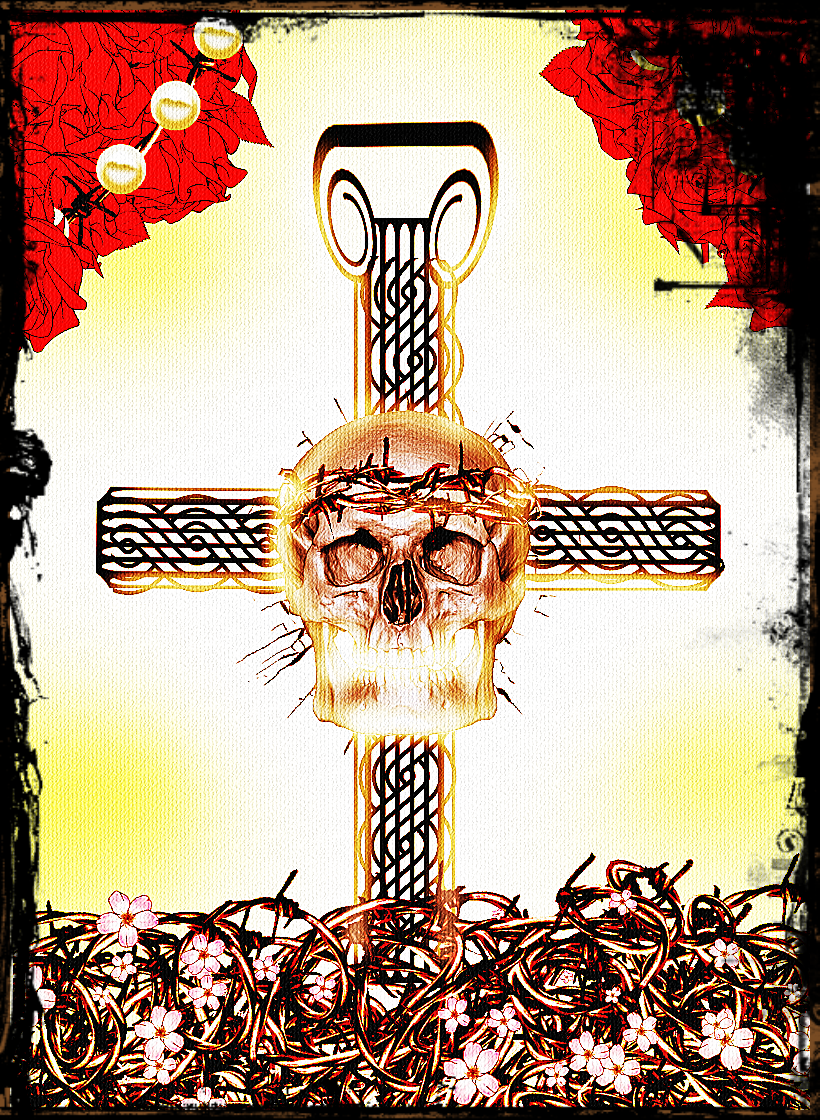
whitenight! everyone's favourite little nuisance, and very obviously an allegory for the christian god. i have some funny opinions about exactly how and why this works, though.
i think that the references go a lot deeper than just a surface-level comparison, and it's actually pretty neat to me.

so. plague doctor. the first iteration of our favourite little jetus, disguised as just some guy.
personally, i believe that plague doctor is intended to be a horror spin on the concept of jesus christ. jesus is said to be both the son of god and god himself descended into a mortal body, and i think that plague doctor is a warping of the idea of god descending to live as a man. traditionally this is portrayed as a good thing, but instead, plague doctor is portrayed in such a way that it feels like a trick.
with every "miracle" plague doctor performs, it becomes a little bit closer to whitenight - a little less like man, a little more like god. the blessing is beneficial, but ultimately ends in the loss of all the blessed employees, and its permanent transformation into whitenight, a far more dangerous abnormality. as such, the "blessing" is more like a betrayal. plague doctor's ultimate transformation into whitenight is also reminiscent of the death and resurrection of christ, with it becoming a winged fetus with a crown of thorns; punishment and rebirth. the twelfth apostle being marked even parallels the events leading up to jesus' death, for reasons i'll be getting into.
plague doctor's blessing is delivered via a kiss. the concept of betrayal by a kiss is, of course, a reference to judas' betrayal. this is awfully relevant to an abnormality that's supposed to be an allegory for jesus christ, but jesus and judas traits are not typically combined in this way.
whitenight raises the 12 blessed employees as its "apostles". 11 of them lose their free will and are no longer controlled by the player, losing most of their original appearances and becoming "angels". i believe these apostles represent the idea of "living to serve god and being rewarded with eternal life in heaven": there's no sin in heaven, therefore no free will, and the apostles themselves always return when whitenight breaches and intermittently revive themselves mid-fight. the revival is all at once, as well, which parallels the idea of the rapture, taking the souls of true believers up to heaven. however, the twelfth apostle is different.
you retain control of the twelfth apostle. the twelfth apostle remains human. and the twelfth apostle is named as a "betrayer" among the twelve, the designated judas of the group.

this is where it gets interesting.
the only way to stop whitenight's breach early is for the twelfth apostle to go to the abnormality "one sin and hundreds of good deeds", and perform the special "confess" work. the twelfth apostle then dies, and whitenight is struck with a beam of light which melts through it, dealing increments of 666 damage - the number of the beast, and the number engraved on its collar. the apostles, having lost their purpose, impale themselves on their own weapons, and whitenight returns to containment.
one sin is an interesting fellow. with its appearance being a skull mounted on a cross, it's literally a physical representation of "death on the cross". it wears a crown of thorns as well, and is stated to feed from absolving people's sins, punishing only those who withhold information or lie during confession. it's clearly a more positive allegory for jesus, but its main utility ultimately ends up being to kill god. and the one who does it? the betrayer. the employee chosen as the allegorical judas ends up sacrificing their life to save the facility, confessing their sins to absolve everyone else. the judas archetype ends up performing a messianic self-sacrifice. it inverts the idea of the devil fearing god, too, with the twelfth apostle being said to be "a devil" during the sequence leading up to whitenight breaching, but ultimately being the one to defeat it.
whitenight represents the horror and wrath of god, while one sin represents forgiveness. the resurrection of christ is conflated both positively and negatively with the number of the beast. whitenight and the twelfth apostle both contain references to both jesus and judas, blurring the line between god and devil. everything related to this funky little set of guys blurs that line, mixing together positive and negative aspects with both sides to create this layered, multifaceted biblical reference that i find very interesting.